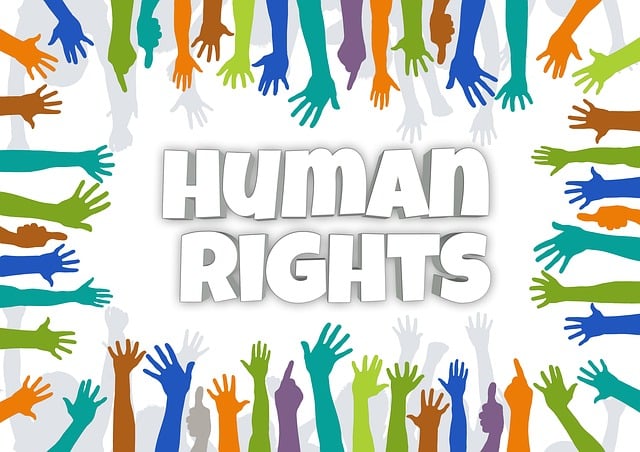Attention Consumers! Empower Your Voice
B developed a large blister on his face after using a lotion that contained harmful, skin-irritating ingredients. Company X, however, refused his claim, arguing that the ingredients were clearly listed on the packaging, and it was the consumer’s responsibility to ensure the product suited their skin.
So, can B still seek compensation or redressal?
To determine that, we need to delve into the Consumer Protection Acts established for safeguarding consumers against harmful products and services.
Let’s break it down step by step:
Who is a consumer?
The condition requires that the complainant be one of the following:
- Any voluntary consumer association registered under current law.
- The central or state government.
- One or more consumers.
- A parent or legal guardian.
When can they approach a consumer court or forum?
- When there’s an unfair or restrictive trade practice under Section 47, sub-clause 2, such as the manufacturing of spurious goods or providing deceptive services.
- If a seller refuses to issue a bill or denies a refund.
- When a consumer’s personal information is disclosed without consent.
- In cases where goods are defective or services are inadequate.
- If prices are hiked beyond the legal limit.
- When there is a lack of crucial information about a product or service that may be hazardous to life.
Consumer rights are broad and essential, covering the right to information, choice, raising concerns, and seeking redressal.
Concerned Machineries
The grievances and concerns of consumers were effectively addressed with the enactment of the Consumer Protection Act, 2019, which introduced a three-tier redressal system. These agencies are empowered to handle consumer complaints within their respective jurisdictions and provide appropriate relief.
These agencies are:
- District Forums–
District forums as the name suggested are erected for the district level grievances. This redressal agency is established the by the state government in each district of the state.
Who all comprises of in the District Forums-
- A person who is,or has been, or is qualified to be a district judge, who shall be its president.
- Two other members, one of whom shall be a woman.
The member of the District Forum shall be appointed by the state government on the recommendation of a selection committee.
However, District Court have the jurisdiction to entertain the complaints where the value of goods or services paid as consideration does not exceed 50 Lakh Rupees.
- State Forums-
The State Commission, as the name suggests, is erected for grievances at the state level. This redressal agency is established by the state government in each state or union territory.
Who comprises the State Commission?
– A person who is, or has been, or is qualified to be a judge of a High Court, who shall be its president.
– Not less than two members, and not more than what is prescribed in the State Act, one of whom shall be a woman.
The members of the State Commission shall be appointed by the state government on the recommendation of a selection committee in consultation with the Chief Justice of the state High Court.
The State Commission has the jurisdiction to entertain complaints where the value of goods or services paid as consideration exceeds ₹1 crore but does not exceed ₹10 crores.
- National Forums-
National Consumer Disputes Redressal Commission (NCDRC)- The National Consumer Disputes Redressal Commission, as the name suggests, operates at the national level. This quasi-judicial commission was set up in 1988 under the Consumer Protection Act of 1986. Its head office is located in New Delhi.
Who comprises the National Commission?
The president of the Commission is either a sitting or retired Judge of the Hon’ble Supreme Court of India or a sitting or retired Chief Justice of a High Court.
The Commission is currently headed by Hon’ble Mr. Justice Amreshwar Pratap Sahi, former Chief Justice of Patna and Madras High Courts.
The National Commission has jurisdiction to entertain complaints where the value of goods or services paid as consideration exceeds ₹2 crores.
It also has Appellate and Revisional jurisdiction over orders passed by the State Commissions or District forums.
Do you know? Under Section 23 of the Consumer Protection Act, 1986, any person aggrieved by an order of the National Commission may prefer an appeal to the Supreme Court of India within 30 days.
- Central Consumer Protection Authority-
The government is stepping up to protect consumers under Section 10(1) of the Consumer Protection Act, 2019. What does this mean for you? Simply put, there’s a new authority in town with one mission – cracking down on unfair trade practices and those misleading ads that take advantage of consumers.
Where’s it happening?
The main office will be in Delhi’s National Capital Region, but regional offices could be popping up across the country, bringing protection closer to home.
So, what powers does this authority have?
Imagine this – they can investigate consumer rights violations and unfair trade practices on their own, based on complaints or even by orders from the central government. They can even recall unsafe goods, withdraw hazardous services, and ensure you get your money back if you’ve been duped by bad products or services.
And if you think false or misleading ads will continue to get a free pass – think again! Advertisers beware: penalties can go up to Rs 10 lakh and 2 years in jail for misleading ads. If it happens again, the fine could rise to Rs 50 lakh and 5 years behind bars! Plus, endorsers of these false ads could be banned from promoting anything for up to three years.
But there’s more!
The authority can file complaints before various consumer commissions and stop businesses from engaging in practices that harm consumers.
Who’s leading this authority?
A Chief Commissioner will be at the helm, supported by two other commissioners—one focusing on goods and the other on services. The authority will also have an Investigation Wing, led by a Director General, to independently investigate consumer law violations.
Even District Collectors have been given the power to step in and investigate complaints of consumer rights violations.
Tough Penalties for Adulterated Products:
If you’re selling or making adulterated products, beware – the penalties are steep. Fines can range from Rs 1 lakh to Rs 10 lakh, with imprisonment ranging from six months to life, depending on the severity of harm caused to consumers.
Why this matters?
The Central Consumer Protection Authority (CCPA) is here to safeguard your rights, ensuring businesses play by the rules. With broad powers, the CCPA can take actions like product recalls, refunds, and even class-action suits, making sure that consumers are always a priority.
- Mediation Cell
To escape the juggling in the courtrooms you can go for a mediation cycle where a third party will resolve the disputing issues and safeguard you by a conclusion that is balanced and impartial.
The Consumer Protection Act, 2019 replaces the older 1986 law, bringing fresh changes to how consumer rights are protected. One key update? The introduction of Consumer Mediation Cells—a game-changer for settling disputes in a faster and friendlier way.
Over the years, the market has transformed significantly with e-commerce, new technologies, and changing consumer tastes. While these developments offer new opportunities, they’ve also led to unfair practices like misleading ads and sub-standard products. That’s why the government stepped in with a modernized law to tackle these new challenges.
What is Mediation?
Mediation is a voluntary process where a neutral third party, called a mediator, helps the disputing parties come to a mutual agreement. The mediator doesn’t impose decisions but creates a space for parties to settle their disputes themselves. It’s a tried and tested method for resolving conflicts efficiently.
When can a Consumer Dispute be Referred for Mediation?
A Consumer Commission can refer a dispute for mediation either at the first hearing or later, if they see a chance for settlement. This is outlined in Section 37(1) of the Act.
What Disputes Can’t be Mediated?
Not all disputes can go to mediation. Here are some exceptions:
– Medical negligence cases leading to grievous injury or death.
– Disputes involving compounding of offences.
– Serious allegations like fraud or forgery.
How Does a Mediation Referral Happen?
If the Consumer Commission thinks a settlement is possible, they can ask the parties to consent in writing within five days. If all parties agree, the case is referred for mediation.
Can Parties Request Mediation?
Absolutely! Either party can file an application requesting mediation, and if both agree, the Commission may refer the case for settlement under Section 37(2).
A Roadmap-
A consumer’s voice is as influential as that of a citizen, carrying the potential to shape markets and demand accountability. It’s vital that they’re aware of the redressal mechanisms at their disposal, serving as a shield against unfair practices. If left unchecked, these unresolved grievances can chip away at the very rights and expectations that form the foundation of trust in the marketplace, eventually snowballing into issues that could swallow the consumer’s power whole. By leveraging these redressal capacities, buyers can prevent the drip of festering injustices from eroding their rightful claims.







